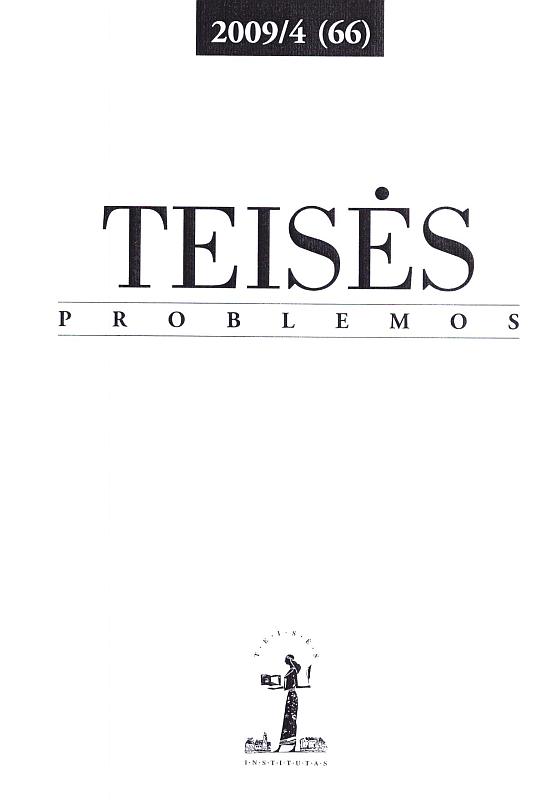Teisminės ir neteisminės šeimos ginčų mediacijos galimybės
Opportunities of Court-Annexed and Private Family Disputes Mediation
Author(s): Salomėja Zaksaitė, Zigmas GaralevičiusSubject(s): Law, Constitution, Jurisprudence
Published by: Lietuvos teisės institutas
Summary/Abstract: In this article the regulation of family disputes mediation in several European Union countries is analysed in order to offer the most effective model of family mediation. Generally, two forms of family mediation exist: court-annexed and private. Both types have specific advantages and disadvantages. The main points of court-mandated mediation are economy, obligatory character and cooperation between the court and community. The key virtues of private mediation are flexibility, responsibility carried by parties (not the court) and confidentiality. The most optimal way is to search for the hybrid model, for instance to implement co-mediation, when one mediator is lawyer; the other – psychologist. It should also be noted that both types of mediation are encouraged by informing the society about possible ways of alternative dispute resolution (ADR), implanting interdisciplinary theoretical and practical education for mediators and investing in state-compensated mediation services. What concerns Lithuania’s situation in the concrete, some special obstructions, related mainly with the lack of state recognized family disputes policy, exist. Therefore, it is questionable whether family disputes mediation extends in the Republic of Lithuania, still international standards could be a solid incentive for the development of family disputes mediation at a national level.
Journal: Teisės problemos
- Issue Year: 2009
- Issue No: 66 (4)
- Page Range: 70-108
- Page Count: 39
- Language: Lithuanian

